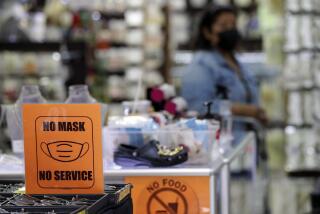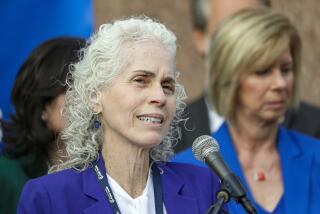Column: This suburban ‘mask cop’ in the San Fernando Valley is 81 and loud
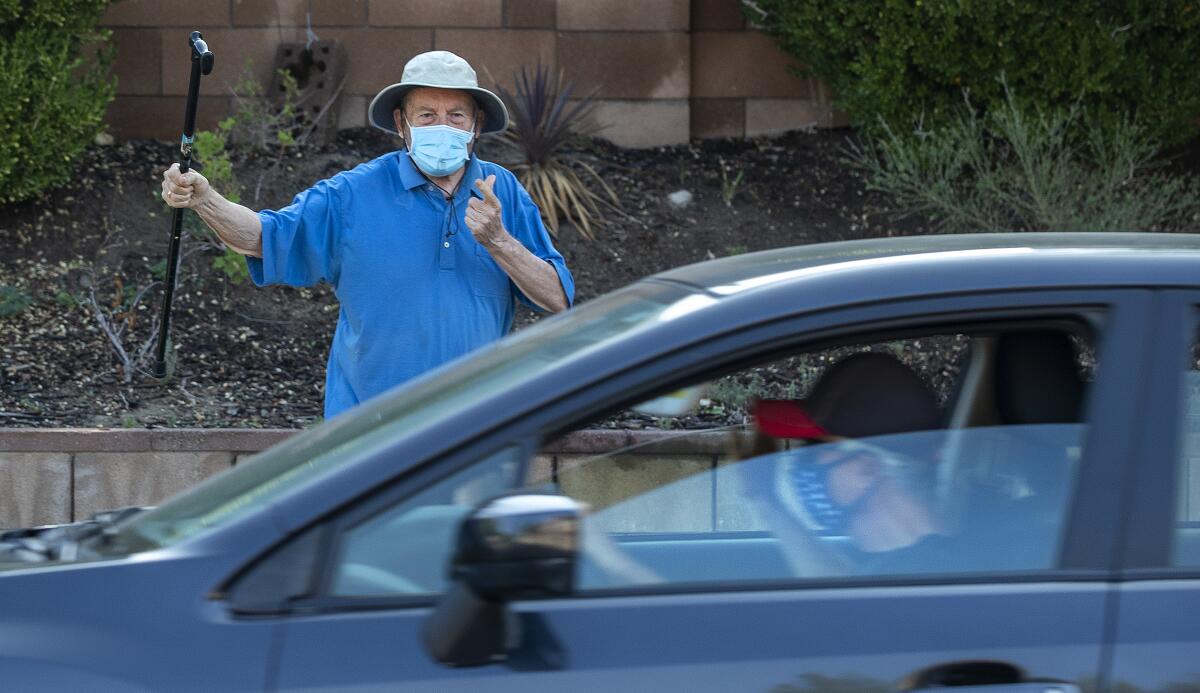
I presumed he was a crotchety old man with racist tendencies after he berated me publicly for not wearing a mask as I strolled along a quiet street in our suburban Northridge neighborhood. Why else would he single out my daughter and me, the lone Black people among the walkers, runners and bicyclists enjoying the balmy evening.
It took months for me to realize that the man, whose name I now know is Charles Dirks, treats every unmasked person he spots to the same loud harangue: “Where is your mask? You need to wear a mask!” The retired political science professor considers it his civic duty in the era of COVID-19. “People have got to be saved,” he insists. “Even if they don’t want to hear it.”
His wife, Xiaoping Liu Dirks, views his crusade a little less charitably. “He’s passionate about so many things,” she said. “That’s something wonderful about him.” But this particular passion sometimes seems to run amok. He has frightened strangers and aggravated neighbors, she said. “I just have to hope they understand that he means well.”
I wound up in the aggravated group last spring. We were a month into the coronavirus siege, and wearing masks in Los Angeles had just become a thing. The rules were still fuzzy, and masks were hard to find. So I was annoyed when the old man with a cane began yelling at me for walking without a mask on a deserted sidewalk a few blocks from my home.
“Where’s your mask?” he shouted from across the street, waving his cane and quickening his pace to catch up with my daughter and me. I bristled immediately, irritated by his authoritarian tone.
“We’re outside, and there’s no one anywhere near us,” I shouted back, walking faster to put distance between us. I could hear him yelling even after we turned the corner: “You have to wear a mask! It’s the law!”
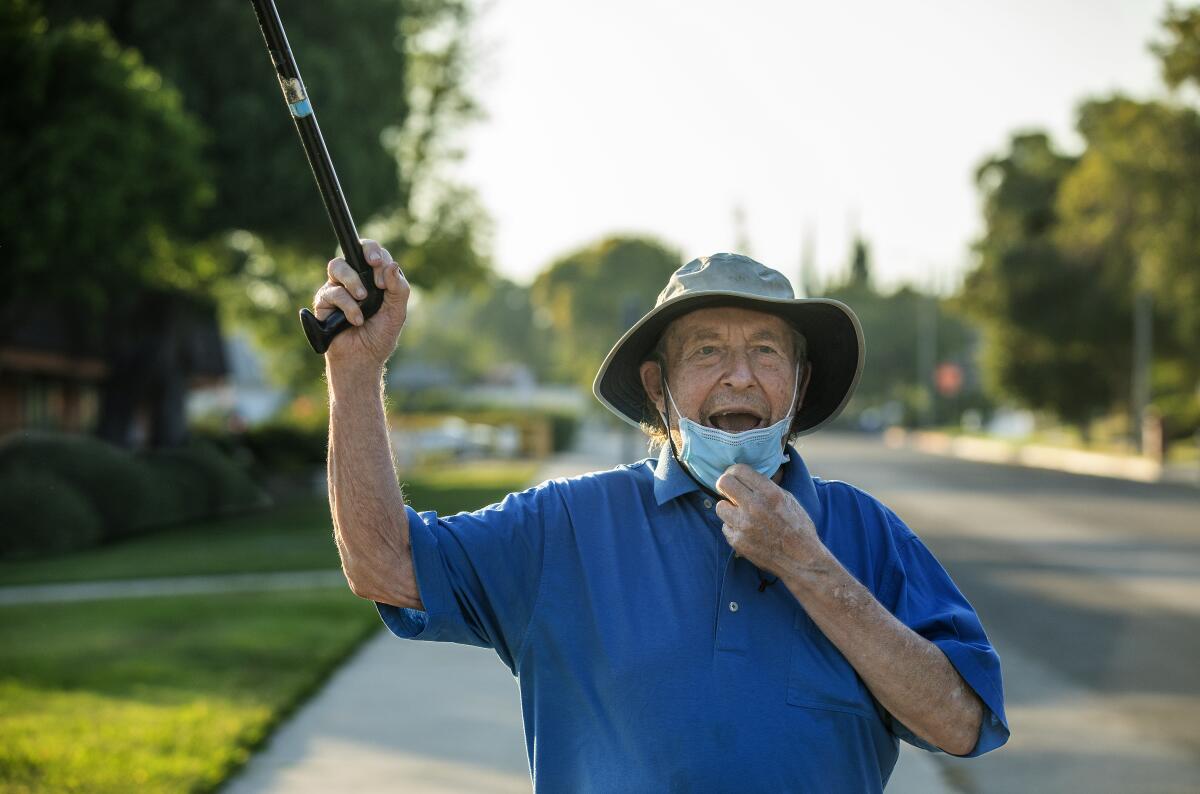
I knew that wasn’t true, so I yelled back at him. We could have been inching toward the kind of street standoff that goes viral on social media. Instead, my daughter took me by the arm and steered me back toward home.
The skirmish was a minor annoyance, but I stewed about it for months — replaying in my head his uncalled-for interference and my overheated response. This was not about science versus civil rights. And it wasn’t really masks we’d been arguing about. His hectoring had threatened my fragile sense of autonomy, at a time when so many options are off-limits because of COVID-19.
Nobody likes to be yelled at by a stranger. Still, my overreaction made clear that the virus and its co-conspirators — raging wildfires, record-breaking heat, dangerously contentious politicking and Black lives not mattering — were taking a toll on me. I seldom venture out, I always social distance, and I strap on a mask wherever it’s required or needed. A solitary walk in the open air — without a mask fogging my glasses or impeding my breathing — has become my primary pandemic luxury.
It’s the rare good choice I can make; balancing freedom and safety, without imperiling anybody. I wasn’t going to let an overzealous neighbor take that from me.
::
I know I’m lucky to live in a neighborhood where the sidewalks are wide, there’s very little traffic and everyone automatically adheres to our unwritten pandemic ethos: You step off the sidewalk or walk across the street to avoid sharing space with anyone else on your route. So why don’t our precautions satisfy the man neighbors have taken to calling “the mask police”?
My daily walks began to resemble surveillance missions, as I tried to figure out what motivated Dirks. He wasn’t hard to spot on his morning and evening walks, with his wooden walking stick and unyielding intensity. To mask-wearers, he shouted a hearty, “Thank you!” But he’d scold and shake his cane at cars if the drivers were not wearing masks. And he ended every encounter with the same jaunty refrain: “Have a wonderful day!”
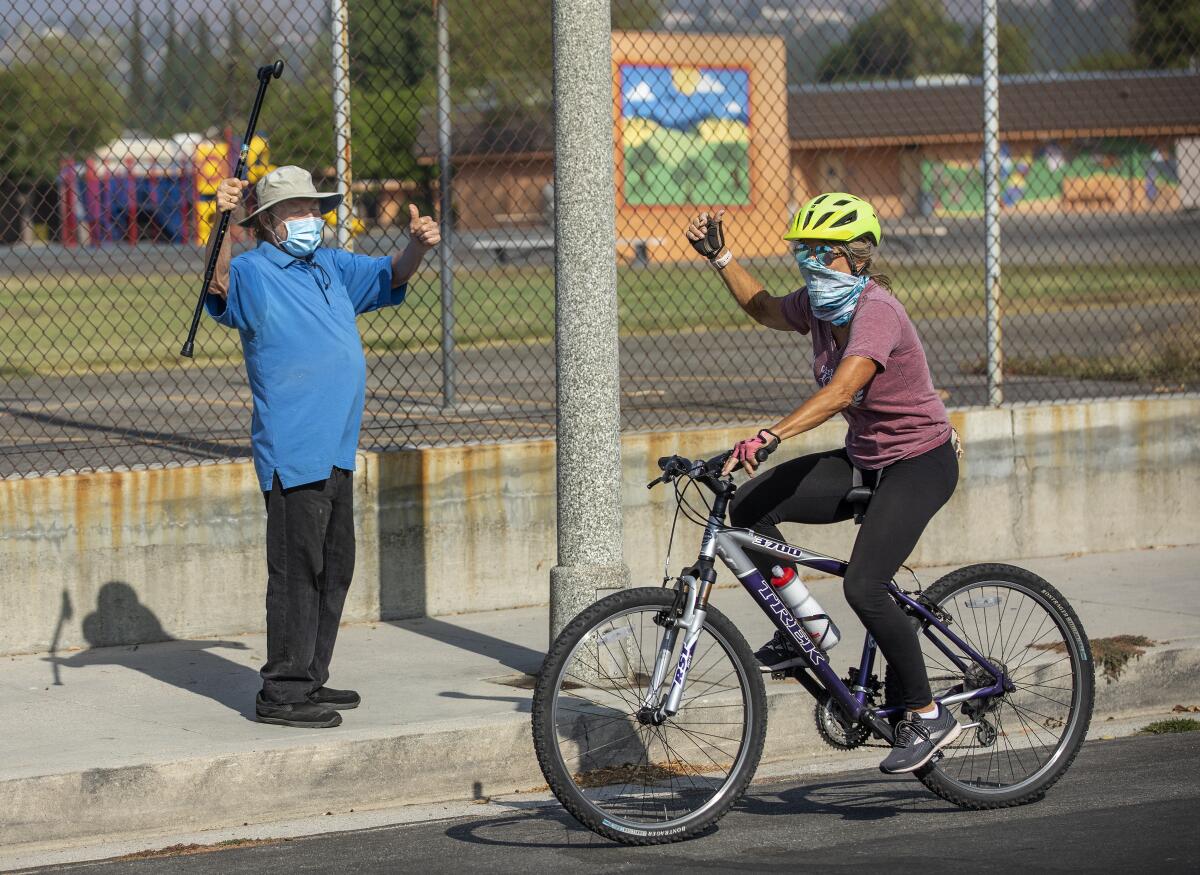
As I watched from a distance, the reactions to Dirks became familiar to me. The guy in the blue SUV who gives Dirks the middle finger every time he drives by. The teenage girls who never wear masks and giggle when Dirks calls the coronavirus “the Trump disease.” The runners without masks who glide by without a glance, no matter how insistent Dirks is. And folks like my neighbor Diane Garlock, who’s lived on my block for almost 50 years and just wants to walk in peace.
“We’re more than six feet away,” she reminded Dirks this week, as he yelled from across the street that she needed a mask. She doesn’t try to argue anymore; she changes the subject and asks about his family instead.
I finally got the nerve to introduce myself to Dirks when we crossed paths as I was walking my dog last week. I was too embarrassed to mention our previous encounter, and hoped the mask I’d hastily strapped on would keep him from remembering me. He was surprisingly cordial and invited me to his home a few blocks away. We sat at his dining room table and talked through our masks about his quixotic crusade. The man I got to know was nothing like the man I had imagined.
Dirks, it turns out, was an icon of sorts on the campus of Los Angeles Mission College, the northeast San Fernando Valley institution he helped bring into being 45 years ago. Dirks taught history and political science until he was well into his 70s, and was widely known as a fierce advocate for students. In fact, he was once roughed up and arrested for challenging sheriff’s deputies he witnessed bullying a student.
Decades earlier, as an Occidental College student in 1960, Dirks was part of the country’s first Peace Corps contingent; he spent a year building schools in Ghana. That, he said, sparked his interest in teaching and cemented a credo he’s tried to live by since he was a Boy Scout growing up in North Hollywood: Do a good turn every day. Leave the world a better place than you found it.
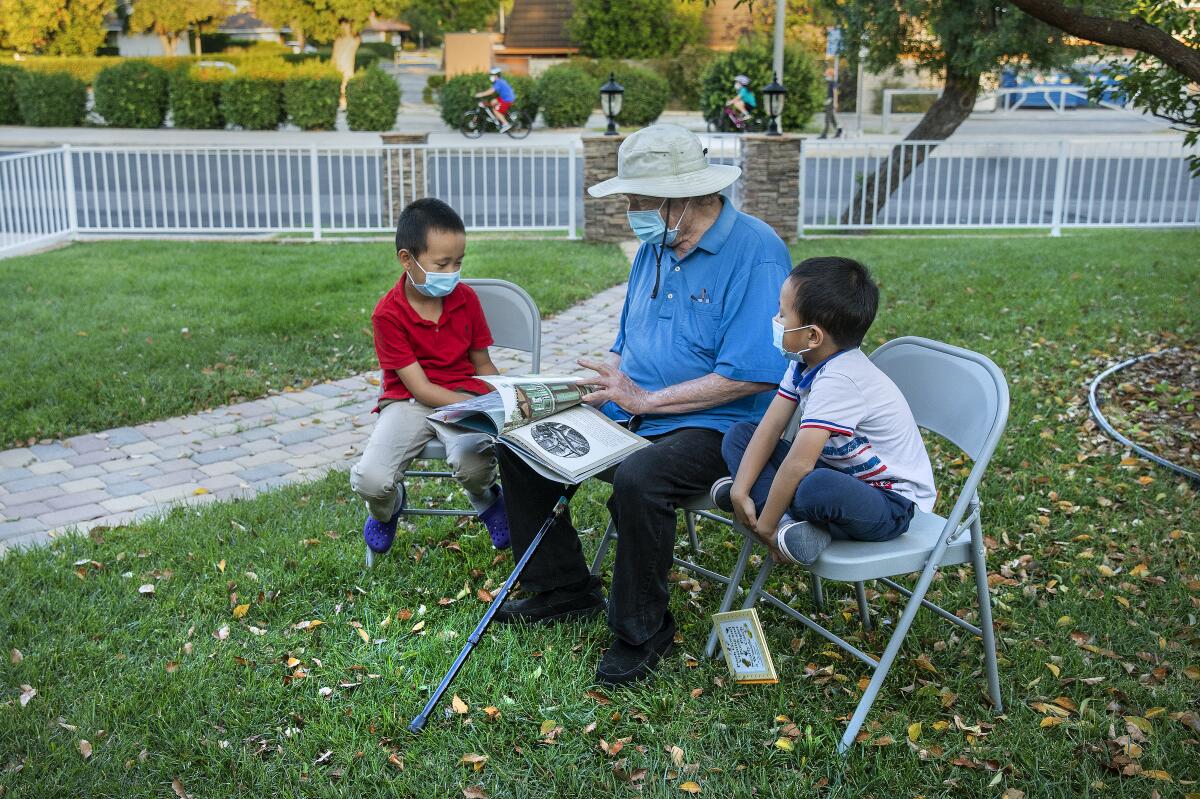
Folks who consider Dirks the local curmudgeon might be surprised to spot him on the front lawn of Li Yuan and Henry Liu, reading to their two sons. He’s “Uncle Charley” to these neighborhood kids. Three afternoons every week, he visits to shore up the boys’ love of books.
“We love him, and he loves the kids,” Henry Liu told me. “People give him a hard time, but he’s a very good person who just wants to keep everybody safe.”
And although I’m still not sold on Dirks’ methods, I understand that his intentions are good.
We’re living in a time when the man in the White House is doing everything he can to downplay the seriousness of a health crisis that has gut-punched our country and killed more than a million people around the world. Many of his followers and science-deniers mock people who are committed to masking up in crowds. That makes the campaign Dirks wages every day seem like a relatively wise and benevolent counterpoint, even if it’s loud and irritating at times.
Dirks honestly believes that badgering us about wearing masks is making our community a better place. He feels great when someone with a mask dangling from their neck spots him and quickly pulls it on, because they don’t want to be the target of his verbal barrage. “I’m going to stay active and keep talking about the virus, because I don’t want people to die,” he says.
He knows that some people consider him a pest, or worse, but he’s not bothered by that.
“I hear it a lot: ‘Don’t tell me what to do!’ But I’m a teacher... so it’s certainly not the first time I’ve heard that.”
He has found a cause that makes him feel like he’s contributing, in much the same way his years as an educator did. I don’t know if his crusade has saved any lives. But I do know that getting to know Dirks has punched a hole in the stereotype I’d reflexively ascribed to him.
And if I have to tuck a mask in my pocket before I head out for a walk, that’s a small price to pay to humor the crotchety but well-meaning mask cop.
More to Read
Start your day right
Sign up for Essential California for news, features and recommendations from the L.A. Times and beyond in your inbox six days a week.
You may occasionally receive promotional content from the Los Angeles Times.

